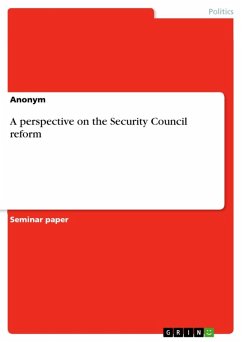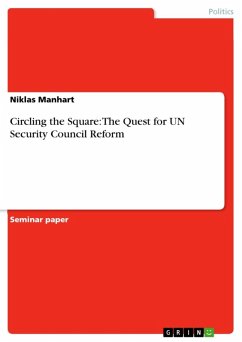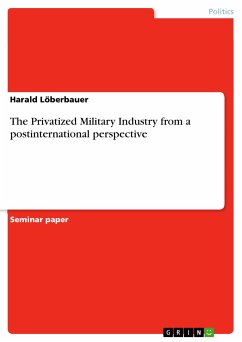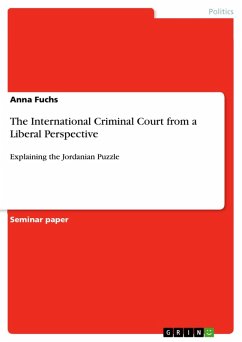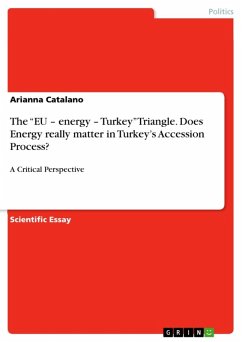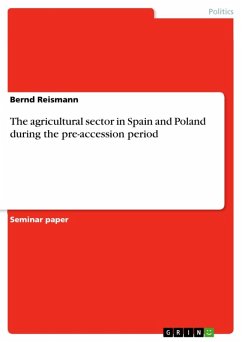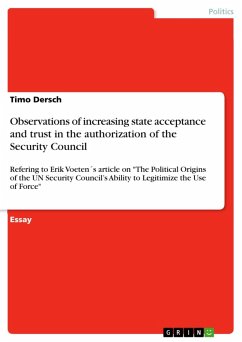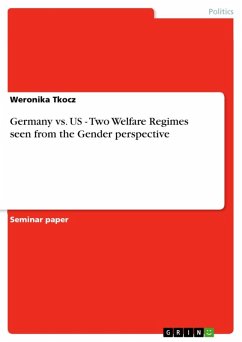Seminar paper from the year 2009 in the subject Politics - International Politics - Topic: International Organisations, University of Applied Sciences Bremen, language: English, abstract: Introduction The reform of the Security Council is potentially the most important and politically charged issue facing the United Nations.1 There hasn't been any reform since the funding of the United Nation in 1945 except for one expansion of non-permanent membership in 1963. The five permanent members of the United Nations are China, France, the Russia Federation, United Kingdom and United States and they represent the global power. Since 1945 the economic and political changes that have taken place have questioned the legitimacy of permanent member seats. In December 1993, the General Assembly established an Open-ended Working Group to consider an increase in the membership of Security Council and reforming the working methods. The demands placed on the reform were the increase in both permanent and non-permanent categories of membership, the veto as an anachronistic and undemocratic instrument, the improvement of working methods and the enhancement of transparency. They requested the conclusion of the reform be as quick as realistically possible. Different opinions could be found in the size of increase by category of membership, the total size of enlarged Council, the composition of an expanded Council and in the approval of a reform. This was the outcome after initial consultation of the member states about this topic in 1997. Over this period many resolutions were proposed but a consensus could not be found. At a press conference in May this year Ambassador Zahir Tanin, Permanent Representative of Afghanistan to the UN and Chair of Intergovernmental Negotiations on Security Council reform released the current overview on the debate and concluded that "there is light at the end of the tunnel". By having a closer look at the overview a likely conclusion on the reform is doubtful. Many major issues for example the veto power and Council size have not been solved but have shown how crucial they are in the past. In this paper I am going to examine the current status in the realm of the past to see what it could mean for the future perspective of the reform. [...]
Dieser Download kann aus rechtlichen Gründen nur mit Rechnungsadresse in A, B, BG, CY, CZ, D, DK, EW, E, FIN, F, GR, HR, H, IRL, I, LT, L, LR, M, NL, PL, P, R, S, SLO, SK ausgeliefert werden.

